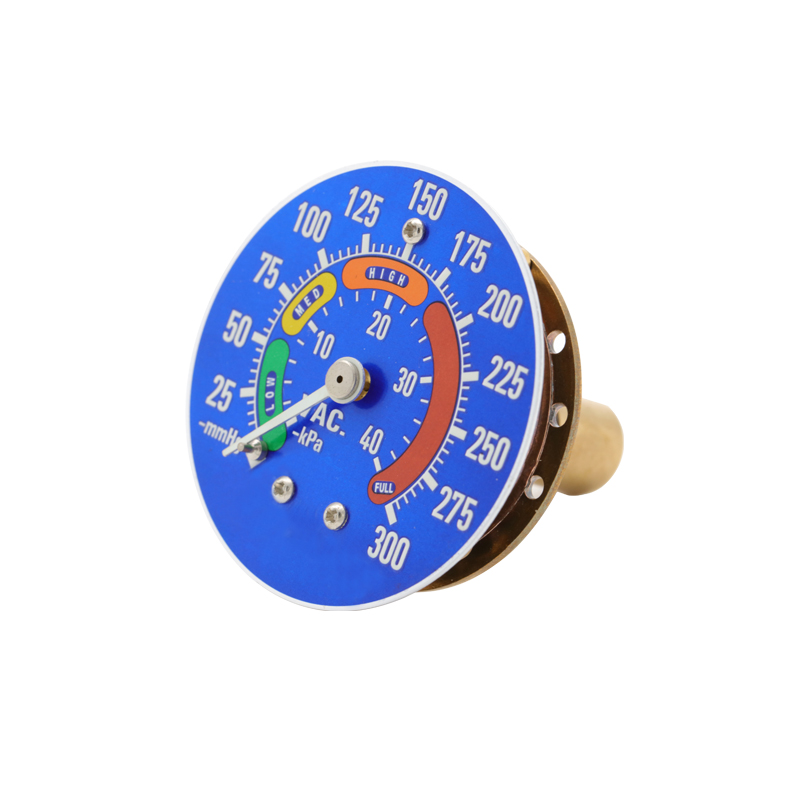
Nov . 29, 2024 22:37 Back to list
high accuracy differential pressure gauges products
High Accuracy Differential Pressure Gauges An Essential Tool for Precision Measurement
In numerous industrial applications, accurate measurement of pressure differences is critical for process control, safety, and efficiency. High accuracy differential pressure gauges have emerged as indispensable instruments in various sectors, including oil and gas, chemical manufacturing, HVAC systems, and pharmaceuticals. These gauges ensure that processes run smoothly by providing precise readings that help maintain optimal operating conditions.
Understanding Differential Pressure Gauges
A differential pressure gauge measures the difference in pressure between two points in a system. This measurement is crucial for monitoring various parameters such as flow rates, liquid levels, and filter conditions. The design of these gauges allows them to detect small changes in pressure, making them well-suited for applications requiring high precision.
High accuracy differential pressure gauges typically utilize several technologies, including mechanical gauges, electronic transducers, and strain gauges. Each technology offers unique benefits, with electronic models often providing superior precision and a wider range of measurement capabilities. These gauges are essential in applications where even minor pressure variations can lead to significant process changes.
Key Features of High-Accuracy Differential Pressure Gauges
1. Precision and Reliability High accuracy differential pressure gauges are designed to measure pressure differences with minimal error, often within ±0.1% of full scale. This level of precision is vital in processes such as drug formulation in pharmaceuticals, where strict thresholds must be maintained.
2. Wide Measurement Range Advanced models can measure a wide range of pressures, from very low differential pressures (in the pascal range) to high pressures (in the bar range). This versatility makes them suitable for various applications, allowing operators to monitor different systems without needing multiple gauges.
3. Robust Construction Many high accuracy differential pressure gauges are built to withstand harsh industrial environments. Resistant to temperature fluctuations, vibrations, and corrosive substances, these gauges ensure longevity and reliability, reducing maintenance costs.
4. User-Friendly Design Modern differential pressure gauges often feature digital displays with easy-to-read formats, allowing operators to interpret data quickly and accurately. Some models offer advanced features like data logging, remote monitoring, and connectivity to computerized systems, enhancing operational efficiency.
high accuracy differential pressure gauges products

5. Calibration and Maintenance Regular calibration is essential to ensure the accuracy of pressure measurements. High accuracy gauges often come with calibration certificates and tools, allowing users to maintain optimal performance. Some manufacturers offer calibration services, ensuring that even the most sensitive gauges operate within specified accuracy limits.
Applications of High Accuracy Differential Pressure Gauges
High accuracy differential pressure gauges find applications in a variety of industries
- Oil and Gas Used extensively in upstream and downstream processes, these gauges help monitor pressure drops across filters or separators, ensuring optimal flow and preventing costly downtime.
- Chemical Processing Accurate pressure differential measurements are essential in reactors and distillation columns, helping operators maintain desired reaction conditions and ensuring product quality.
- HVAC Systems In heating, ventilation, and air conditioning systems, these gauges are critical for monitoring air filter performance and airflow across various components, ensuring efficient energy usage and maintaining air quality.
- Pharmaceuticals In laboratories and production facilities, maintaining precise pressure differentials is crucial for successful drug formulation and safe operation of equipment.
Conclusion
High accuracy differential pressure gauges are vital instruments for industries requiring precise pressure measurement. With advancements in technology, these gauges offer exceptional reliability and versatility, making them crucial for maintaining safe and efficient operations. As industries continue to evolve and demand higher precision, the role of differential pressure gauges will only become more significant, driving innovation and supporting the success of various processes. Investing in high-quality differential pressure gauges is, therefore, an investment in quality control, safety, and operational efficiency.
-
High-Precision 5 Valve Manifold Differential Pressure Gauge Suppliers
NewsApr.29,2025
-
High-Precision Diaphragm Vacuum Pressure Gauges Manufacturers & Quotes
NewsApr.29,2025
-
Omega Differential Pressure Gauges High Accuracy & Durability
NewsApr.28,2025
-
Low Pressure Differential Pressure Gauges Precision Solutions & Quotes
NewsApr.28,2025
-
Digital Diaphragm Pressure Gaauge Precision Measurement & OEM Quotes
NewsApr.28,2025
-
Differential Pressure Gauge China Price High-Accuracy & Best Quotes
NewsApr.28,2025
